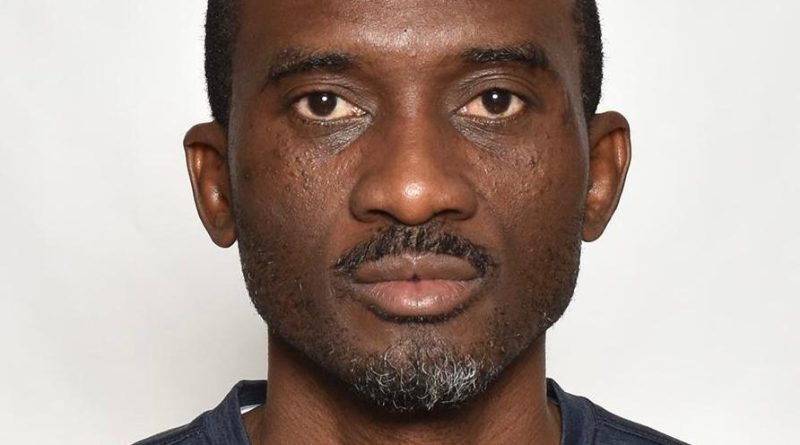Mercy, justice, and the dignity of reformation in Nigeria’s correctional system, By Abdulwahab Sabo

Unfortunately, some segments of the public, whether through deliberate misunderstanding or inadvertence, fail to see the positive and transformative nature of clemency. This misunderstanding risks discouraging inmates from genuine reform and undermines the credibility of the correctional system’s rehabilitative vision. We must not, in our zeal for justice, throw away the baby with the bathwater.
In the words of late Justice Chukwudifu Oputa (CFR), justice must not be a blind goddess but “a human virtue” that sees all sides. Thus, the constitutional power of mercy ensures that the law does not become a machine of despair.
The Prerogative of Mercy is not merely as a constitutional clause, but as a profound moral, legal, and humanitarian safeguard designed to temper the rigidity of justice with the higher virtues of compassion and redemption. It is the living expression of our collective belief that justice without mercy is incomplete, and that the capacity to forgive and reform lies at the heart of human civilisation.
Mercy as a Constitutional Virtue
The Prerogative of Mercy, enshrined in the Constitution of the Federal Republic of Nigeria 1999 (as amended), is not a discretionary indulgence but a constitutional instrument for the promotion of justice, humanity, and public good. It ensures that even after the law has spoken with firmness, compassion may yet have the final word.
In State v Gwonto (1983) 1 NCR 105, the Supreme Court held that clemency is “a constitutional instrument of compassion.” Likewise, in Kalu v The State (1998) 13 NWLR (Pt 583) 531 (SC), the Court recognised that justice encompasses retribution, deterrence, and rehabilitation — affirming that the justice system must aim not only to punish but to restore.
Judicial Guidance on the Exercise of Mercy
The Supreme Court, in Solola & Anor v The State [2005] 11 NWLR (Pt 937) 460 (SC), stressed that the power of mercy is properly a post-conviction instrument, to be exercised only after the judicial process has run its course. It observed that where a death row inmate’s appeal has been dismissed by the Court of Appeal, and a further appeal lies before the Supreme Court, the Prerogative of Mercy cannot be invoked until the final appeal is determined. Once the Supreme Court upholds the conviction, the person becomes fully convicted and the case ripe for executive clemency.
Similarly, in Olu Falae v Obasanjo [1999] 4 NWLR (Pt 599) 476 (CA), the Court of Appeal recognised the plenary and virtually unlimited nature of the power of pardon, defining it as “an act of grace that mitigates or obliterates the punishment for an offence.” The Supreme Court’s posture consistently acknowledges the executive’s wide discretion in this area, provided it is exercised in good faith and within constitutional bounds.
This position finds further support in Lakanmi & Anor v Attorney-General (Western State) (Western State) (1971) 1 UILR 201 where the Court affirmed that constitutionally conferred powers must be exercised in good faith, consistent with justice and public interest. In Chief of Defence Staff v Tijani [2019] LPELR–49794 (CA), the Court of Appeal reiterated that such discretionary powers, when lawfully exercised, are insulated from judicial interference unless tainted by bad faith.
Harmony With International Law
Article 6(4) of the International Covenant on Civil and Political Rights (ICCPR) provides:
“Anyone sentenced to death shall have the right to seek pardon or commutation of the sentence; amnesty, pardon or commutation of the sentence of death may be granted in all cases.”
This international provision situates clemency as a universal safeguard of human dignity, ensuring that every convicted person retains the opportunity for mercy and rehabilitation.
Nigeria’s Fundamental Rights (Enforcement Procedure) Rules 2009 direct courts to interpret rights in line with international human rights norms — including the African Charter on Human and Peoples’ Rights — to give expansive effect to dignity, liberty, and equality.
The Reformative Mandate under the Nigerian Correctional Service Act 2019.
The Nigerian Correctional Service Act 2019 redefines incarceration from punishment to reformation, rehabilitation, and reintegration. Section 14 of the Act expressly prohibits discrimination against any inmate certified to be reformed, affirming that every such inmate must have equal opportunity for reintegration.
This aligns with Article 10(3) of the ICCPR, which declares that “the essential aim of the penitentiary system shall be the reformation and social rehabilitation of prisoners.”
Therefore, when clemency is extended to a reformed inmate, it should not be perceived as selective or arbitrary. Rather, it is the culmination of the correctional process, representing the success of rehabilitation rather than a failure of justice.
Addressing Public Misconceptions
Unfortunately, some segments of the public, whether through deliberate misunderstanding or inadvertence, fail to see the positive and transformative nature of clemency. This misunderstanding risks discouraging inmates from genuine reform and undermines the credibility of the correctional system’s rehabilitative vision. We must not, in our zeal for justice, throw away the baby with the bathwater.
Clemency for a truly reformed inmate is not an injustice; it is justice fulfilled through compassion, consistent with both the Constitution and the moral conscience of the nation.
Abdulwahab Mohammed Sabo, a legal practitioner, wrote from London, UK.

